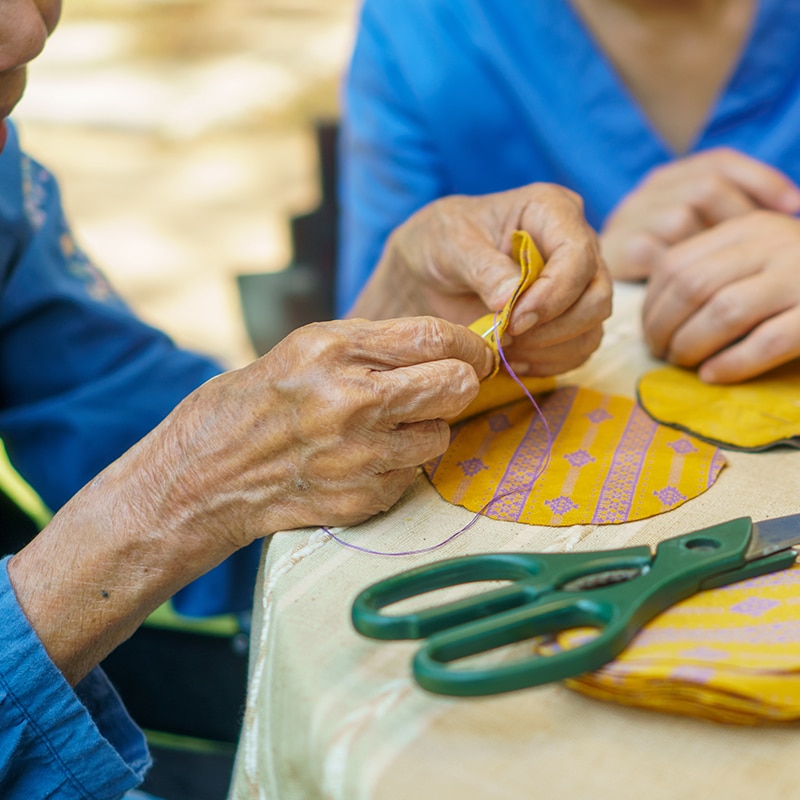
Most mornings, 73-year-old Fays* memory is fairly clear.She can remember her birthday and what she likes for breakfast.If you ask her hows shes doing, she tells you shes doing well and needs to go to her job working with older people, which she likes because they are lonely and isolated.Fay has dementia, which she was first diagnosed with in 2013.
Until 2010, when she retired, Fay was a geriatric nurse practitioner, and proudly held a Masters degree from UCSF.She and her husband Daniel*, 77, raised their family in San Francisco.Until March 2020, Fay was a five-day-a-week participant in Institute on Agings dementia enrichment program, housed in a light-filled spacious facility in the Presidio.Her days were full of conversation, music, dancing, art and other mind-stimulating activities in the good company of others in her same situation.
Fay was so invested in the enrichment program that she believed she was one of the staff members and would constantly check in with her fellow participants to see how they were faring.Then the pandemic hit, and the dementia enrichment program was suspended.Like all the other participants, Fay had no choice but to stay at home.More than a year later, shes still there with Daniel.Her status as someone with dementia means its important for her to keep away from others, as studies show that people with dementia are two times more likely to catch Covid-19.
Even though Daniel keeps a watchful eye on Fay, it is a challenge for him.Its like being in detention, says Daniel.Over time, her progression gets worse.
Some days are better than others.Its a roller coaster.When the couple drives over to their old neighborhood in Sea Cliff and see the house where they lived for 39 years, Fay will remark, oh, thats a nice house.She has little to no memory of living there.
They also take strolls to their old lookout place and visit the small memorial to one of their children who died as a baby.There was also the scary time Fay wandered off in their current San Francisco neighborhood and went missing for a few hours.They found her just before darkness set in.She had taken a bad fall and had to be rushed to the hospital.Fay and Daniel are fortunate to have occasional visits with one son and his family who live nearby, yet Daniel worries about the lasting impact on Fays mental state from the pandemic.
Even though they are able to afford home care and housekeeping help a couple days a week, it doesnt lend itself to the level of enrichment Fay received through IOAs social day program.Daniel signed up for Companioa, IOAs program for dementia caregivers which was put in place to help caregivers through this difficult period.While he and Fay are still new to the program, but he is breathing a sigh of relief from the help he gets from his care coach, who has given him a strategy, forced him to think about priorities and persuaded him to get home care set up.Before Companioa, dealing with this on my own was like going to a museum and using a self-guided tour cassette, says Daniel.Having a care coach is like having a specialized tour with a docent.
It might cost more, but its personalized to our situation, and is worth it.To find out more about Companioa, please call IOAs Connect Line at 415.750.4111.*Names have been changed for privacy reasons.
Disclaimer: This story is auto-aggregated by a computer program and has not been created or edited by Senior Savings Deals.
Publisher: IOA Blog ( Read More )
Publisher: IOA Blog ( Read More )

